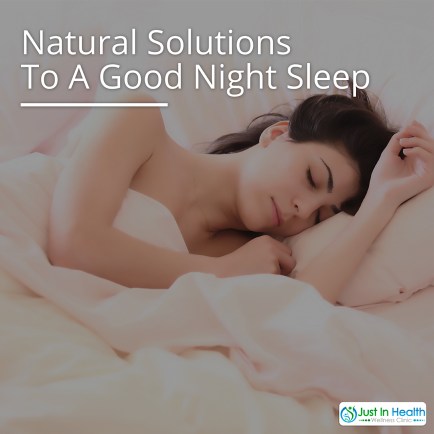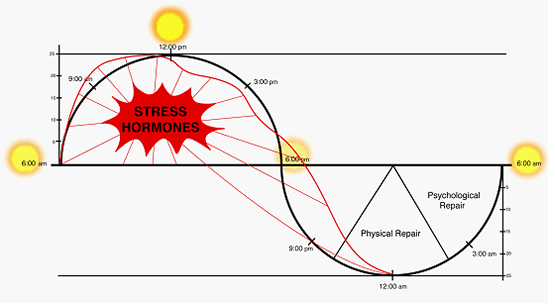
 By Dr. Justin Marchegiani
By Dr. Justin Marchegiani
Roughly half of all Americans suffer from insomnia, and according to the National Center for Sleep Disorders, around 15% of the population deals with chronic insomnia on a daily basis. What’s more, the WHO (World Health Organization) considers shift-work or sleep deprivation the only non-substance carcinogen known to man. That puts a lack of sleep in the same class as cigarettes, asbestos, and other known carcinogenic chemicals!
Sleep is vitally important to help repair the body physiologically as well as psychologically. Physiological repair, such as building muscles, bones, tendons, joints and ligaments etc., occurs between the hours of 10 PM and 2 AM. During this timeframe, HGH (human growth hormone) peaks. You can think of HGH as your anti-aging hormone, consider getting maximal sleep as gaining $2000-$3000 of anti-aging treatment per month for free!
After your body’s HGH peak comes the mental repair. Between the hours of 2 and 6 AM the body psychologically regenerates, and neurotransmitters and other neurochemicals that help with mental health are recycled and repaired.
Cortisol and it’s Circadian Rhythm

The accelerated health risks for poor sleep
Studies have associated numerous health risks with a lack of good sleep. These include:
Increased risk of diabetes
Accelerated aging
An increased risk of cancer
Decreased immune function
Obesity and excessive weight gain
Poor physical performance
Slow mental acuity
It’s estimated that over $100 billion is lost each year due to the loss of productivity that a lack of sleep causes. Lack of sleep is also the leading cause of 100,000 vehicle accidents per year and the associated 1,500 deaths.
The major underlying causes of sleep deprivation:
17% of all US employees are shift workers who stay up working during the night instead of sleeping. If I can urge you to make one decision as an investment in your health, the first thing would be finding a job that allows flexibility to sleep during normal sleep hours. The research is very clear, the increased risk of chronic degenerative diseases and lack of performance will cost you more in the long run financially and physically.
Chronic stressors can be a huge underlying cause of sleep problems. This includes relationship stress, caffeine, chronic illness, infections, blood sugar imbalances, family stress, and hormonal imbalances. One thing that all stress has in common- whether it’s internal stress or external stress- is the increase of cortisol and adrenaline.
Knocking your cortisol and adrenaline out of balance puts a great deal of stress on your adrenal glands. Your cortisol rhythm at night is intimately linked to your melatonin rhythm (melatonin is your night time/sleep hormone). The more you push your cortisol and adrenaline out of balance, the more your melatonin will also be negatively impacted – and so will your sleep.
Stimulants such as caffeine can prevent you from getting to sleep on time. Caffeine has a half-life of up to eight hours, so be sure to consume your coffee or caffeinated tea before 2 PM in order to give your body enough time to metabolize the caffeine before your bedtime.
Certain medications can also interfere with sleep: antidepressants, corticosteroids, allergy medication, and blood pressure medication to name a few. If you are currently taking medication and also have a sleep problem, please look up the possible side effects of the medication you are taking to see if sleep disturbances are a potential side effect.
Click here if you are having sleep difficulties.
Dr. Justin’s Top 7 Sleep Enhancing Tips
To receive my full handout entitled “33 secrets to a good night sleep,” click here!